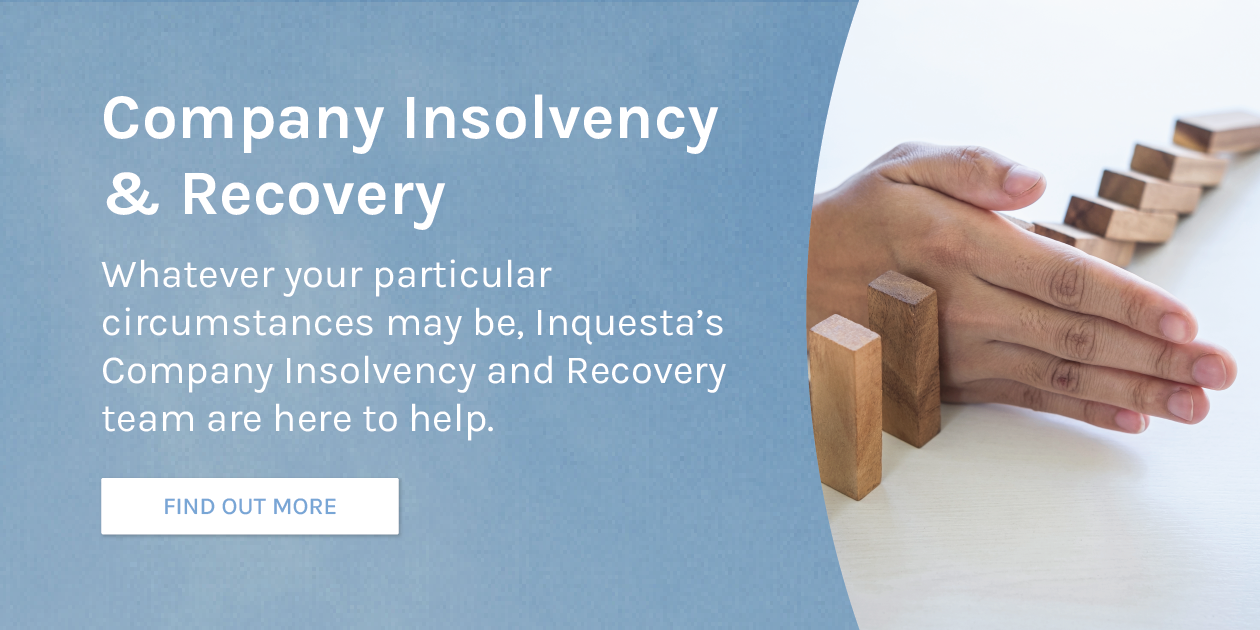The Ultimate Guide To Insolvency Practitioner
The Ultimate Guide To Insolvency Practitioner
Blog Article
The Best Strategy To Use For Insolvency Practitioner
Table of ContentsThe smart Trick of Insolvency Practitioner That Nobody is Talking AboutRumored Buzz on Insolvency PractitionerNot known Incorrect Statements About Insolvency Practitioner Some Known Incorrect Statements About Insolvency Practitioner 9 Simple Techniques For Insolvency Practitioner
Whether or not you need to use a bankruptcy practitioner (IP) to liquidate your company relies on different factors. While engaging a bankruptcy specialist for all types of liquidation is not a lawful demand, doing so can typically enhance the procedure and make certain compliance with legal needs. Liquidating a firm is a crucial choice that features significant repercussions.
It is a treatment made use of when a firm does not have any kind of lenders, or every one of their creditors can be paid off in complete with legal passion. Comprehending the different kinds of bankruptcy procedures can assist you figure out the very best training course of action for your business's liquidation or other official bankruptcy procedures itself.
This is compulsory in order to stick to legal requirements - Insolvency Practitioner. This is because IPs have the essential certifications and experience to make certain that the liquidation procedure is performed according to all applicable legislations and policies. By involving a licensed bankruptcy practitioner, you can have tranquility of mind knowing that your firm's liquidation procedure will be handled properly and in compliance with the pertinent legal demands
Insolvency Practitioner Fundamentals Explained
The insolvency expert is appointed as a liquidator and is in charge of managing the business and liquidator's debts exceptional responsibilities and properties. This procedure entails selling off the business's properties and dispersing the proceeds to financial institutions. Upon completion of the procedure, the firm is gotten rid of from the register at Companies House.
Stopping working to do so can lead to individual responsibility for the firm or director for the creditor's financial obligations. Voluntary liquidation, that includes Financial institutions' Volunteer Liquidation (CVL) and Participants' Voluntary Liquidation (MVL), is started by the firm's supervisors and shareholders when they can no much longer pay their financial debts. In a CVL, the insolvency professional is assigned as the liquidator, in charge of handling business debts and all firm properties.

Some Known Factual Statements About Insolvency Practitioner
By evaluating the expertise and experience of possible bankruptcy experts, you can make sure that you select a specialist that possesses the required credentials to manage your firm's liquidation process effectively. While bankruptcy practitioner-led liquidation is typically the most proper program of activity for companies encountering insolvency, there are alternative techniques to consider, such as striking off and partial liquidation.
It's crucial to review all available choices prior to choosing the next best option or strategy for your service. Striking off business' registers is an extra straightforward and cost-efficient way to shut dormant or little firms without financial obligations or possessions. To strike off a firm, its name is gotten rid of from the Business Residence register by submitting kind DS01.
Before deciding for striking off, it's crucial to evaluate the benefits and downsides of this technique and think about whether it's the right option for your organization. Partial liquidation is an additional choice to bankruptcy practitioner-led liquidation, where a company sells off particular properties and liabilities while proceeding to operate with the continuing to be possessions and responsibilities.
An Insolvency Practitioner will be able to encourage you of the very best course of activity to take and guarantee that everything runs smoothly. Unfortunately, it is not possible to liquidate a firm without a liquidator. Selecting an authorized bankruptcy professional is necessary for the procedure of voluntary liquidation to start.
9 Easy Facts About Insolvency Practitioner Explained
It is feasible to shut and liquidate your business without using a liquidator, provided your firm is solvent and you fulfill the eligibility requirements to liquify or liquidate it. Nevertheless, if your company is bankrupt, you may be required to utilize a liquidator and start official bankruptcy procedures. Right look what i found here are some other insightful articles concerning firm liquidation in the UK:.
Being in a websites setting where you're not able to pay your company's creditors is exceptionally demanding. In an effort to stay clear of boosting the degree of financial obligation, several business try to work out straight with their lenders and consent to an informal plan. If the debt is quite little and owed to one financial institution, and the lender is being cooperative, participating in an casual financial obligation setup is possibly the very best option, instead of searching the internet for 'a bankruptcy professional near me'.
On the other hand, if there are multiple lenders and the level of debt is big, creditors may not be so prepared or cooperative. To avoid liquidation or personal bankruptcy, it is much better to employ a bankruptcy specialist to formulate formal propositions and bargain with creditors on your part.
Some Known Facts About Insolvency Practitioner.
Whilst it is a method to manage financial obligation, there are significant threats involved with this kind of debt arrangement - Insolvency Practitioner. If a creditor is prepared to participate in a casual arrangement (IA) where the debtor has actually consented to make routine, if reduced, settlements to settle the debt, it's essential to stay with the agreement

The lender is within their legal rights to back out of the arrangement and request the courts for your business to be sold off at any time. A formal arrangement that has been proposed by a bankruptcy specialist in your place, and agreed by a lender, gives a much safer option.
Report this page